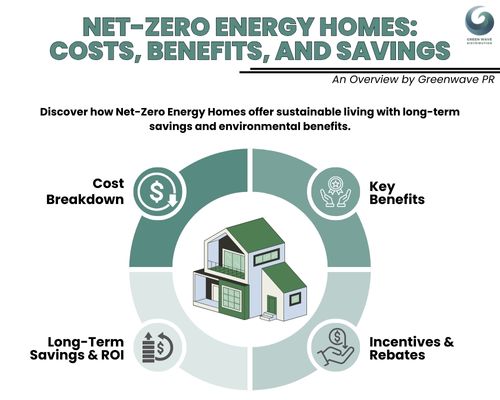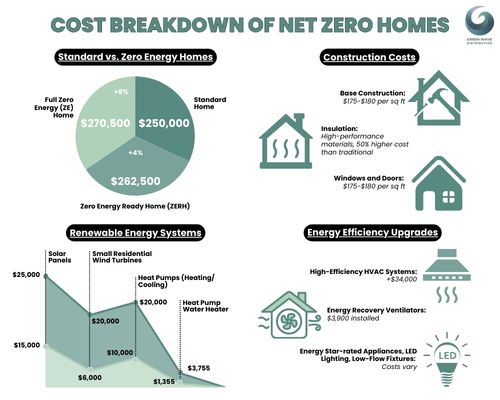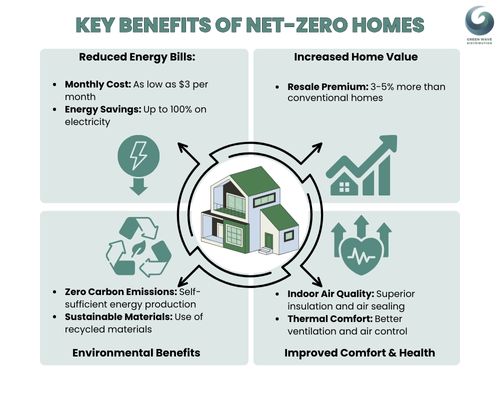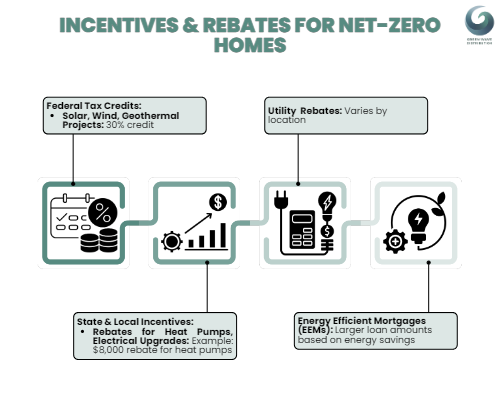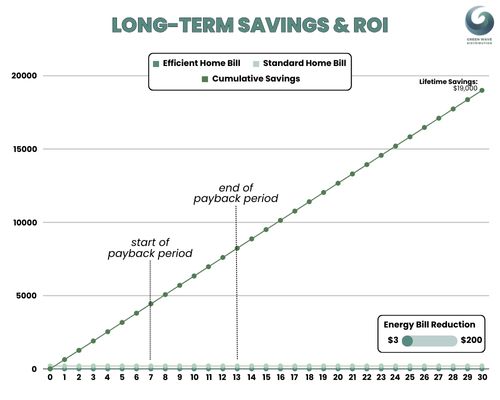The future of housing is here, and it’s net-zero.
These innovative homes are redefining sustainable living, producing as much energy as they consume. But what’s the real cost? And are they worth the investment?
We’ll break down the costs, uncover the benefits, and reveal the long-term savings that make these eco-friendly dwellings a game-changer for homeowners and the planet alike.
Get ready to rethink everything you know about energy-efficient living.
Key Findings
- Net-zero energy homes cost between $270,000 to $280,000 on average, with prices ranging from $150 to $180 per square foot.
- Homeowners can save an average of $1,344 annually on energy bills, potentially accumulating to $33,600 over 25 years.
- These homes offer a 5-10% higher resale value compared to conventional houses.
- Federal tax credits, state incentives, and energy-efficient mortgages are available to offset initial costs.
- Beyond financial benefits, net-zero homes provide improved comfort, better air quality, and significantly reduce carbon emissions.
What Are Net-Zero Energy Homes?
Net-zero energy homes are residential buildings that generate as much renewable energy as they use over the course of a year.
These homes combine energy-efficient design, advanced construction techniques, and renewable energy systems to achieve a balance between energy consumption and production.
The Cost Breakdown
While net-zero energy homes may have a higher upfront cost, it’s essential to consider the long-term benefits.
Here’s a breakdown of what you can expect:
- Average Cost: $270,000 – $280,000
- Cost per Square Foot: $150 – $180
- Example for a 2,000 sq. ft. Home: $282,500
Key components contributing to the cost include:
- Solar Panels: $10,000 – $25,000
- Battery Storage: $5,000 – $7,000
- High-Performance Windows: $8,000 – $10,000
- Insulation and Sealing: $4,000 – $6,000
- High-Efficiency HVAC Systems: $6,000 – $12,000
- Energy-Efficient Appliances: $3,000 – $6,000
Conclusion
Net-zero energy homes represent a revolutionary approach to sustainable living, offering a perfect balance of environmental responsibility and financial savvy.
While the initial investment may be higher, the long-term benefits are undeniable: dramatically reduced energy bills, increased home value, and a significantly smaller carbon footprint. With potential savings of over $33,000 in 25 years and various incentives available, these homes are becoming increasingly accessible.
By choosing a net-zero home, you’re investing in a cleaner, more efficient future for yourself and the planet.





